In an era where public policy impacts every sector, understanding legislation is crucial. Policy professionals, academics, and interested citizens alike need robust tools for legislative research. Having the right tools can transform complex data into actionable insights. Innovative tools are reshaping how we interact with legislative documents. In particular, Plural’s premium data and advanced tools can revolutionize your legislative research.
What is Legislative Research?
Legislative research involves the comprehensive study of congressional documents. This can include analyzing bills and other legislative materials. This research seeks to understand the intent, application, and potential implications of policy. Legislative research helps us understand and contextualize our policy landscape. This includes existing laws, proposed bills, and historical legislation.
Understanding the Legislative Process
The legislative process in the United States is intricate. Understanding how ideas transform into policy is key to engaging with our government. This journey involves many steps, from the introduction of a bill to its enactment as law. Understanding this flow is foundational for effective legislative research.
The Value of Comprehensive Legislative Data
Legislative research can seem daunting. Thousands of bills are introduced each session. Plus, there are dozens of jurisdictions and decades of past sessions to explore. This is where the value of robust data is clear — comprehensive data is key to successful research. Researchers need a tool that synthesizes data and presents it in an intuitive manner.
Steps in the Legislative Research Process
Define the Scope
Determine the focus of your research. This could be a specific piece of legislation, a policy area, or a legislative session.
Gather Primary Sources
Start with direct links to legislative documents. This includes bills, statutes, and committee reports.
Explore Secondary Sources
These provide analyses and interpretations of legislative intent. Secondary sources are invaluable for deeper insight.
Analyze and Synthesize
Cross-reference materials to build a comprehensive view of the subject.
Stay Updated
Legislative action is a dynamic process. Use reliable tools to keep abreast of new developments.
Tools for Legislative Research
Several tools can enhance legislative research. For instance, state legislative websites offer direct access to a plethora of documents. Libraries and government archives provide historical data that’s crucial for understanding legislative context. Subscription databases can also serve as powerful tools, offering sophisticated search options.
Plural for Legislative Research
Plural takes legislative research to the next level. It offers features designed for thorough analysis and efficient workflow. Plural is the tool of choice for many researchers.
Advanced Search
Plural’s advanced search options allows users to pinpoint relevant legislation. Use specific search phrases to narrow your search, or explore via various filters.
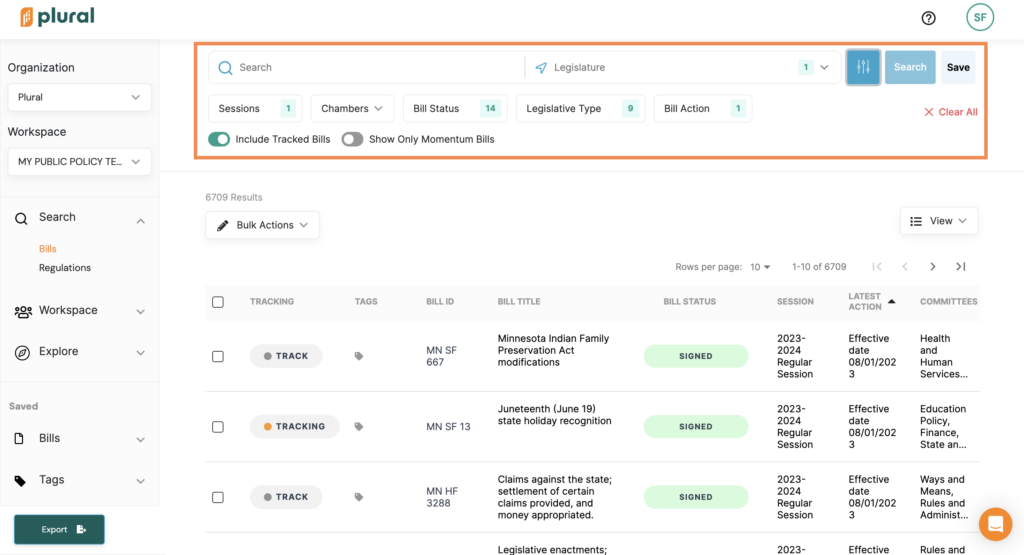
Annotation Tools and Notetaking
Interact with legislative data using Plural’s annotation tools. You can highlight, make notes, and compile your insights right on the platform.
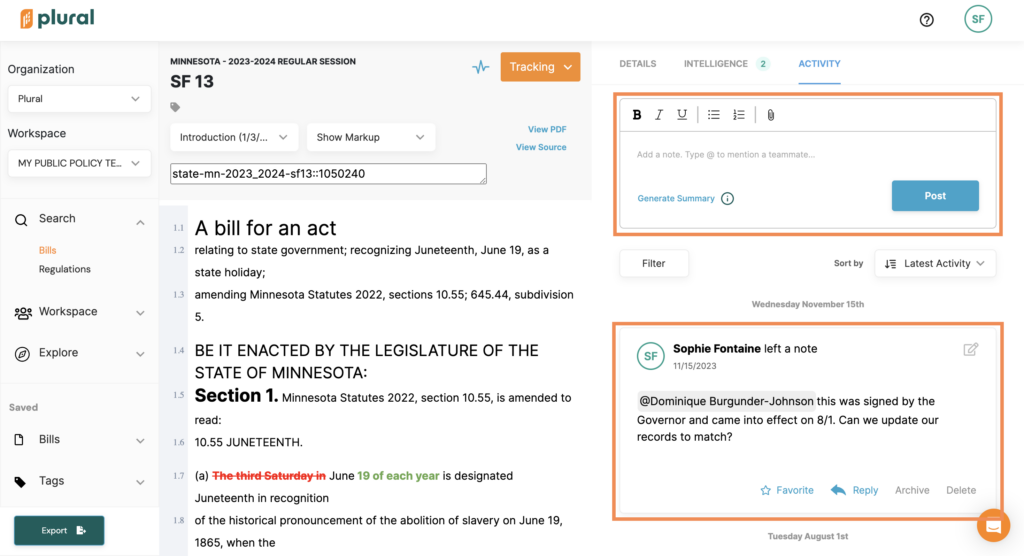
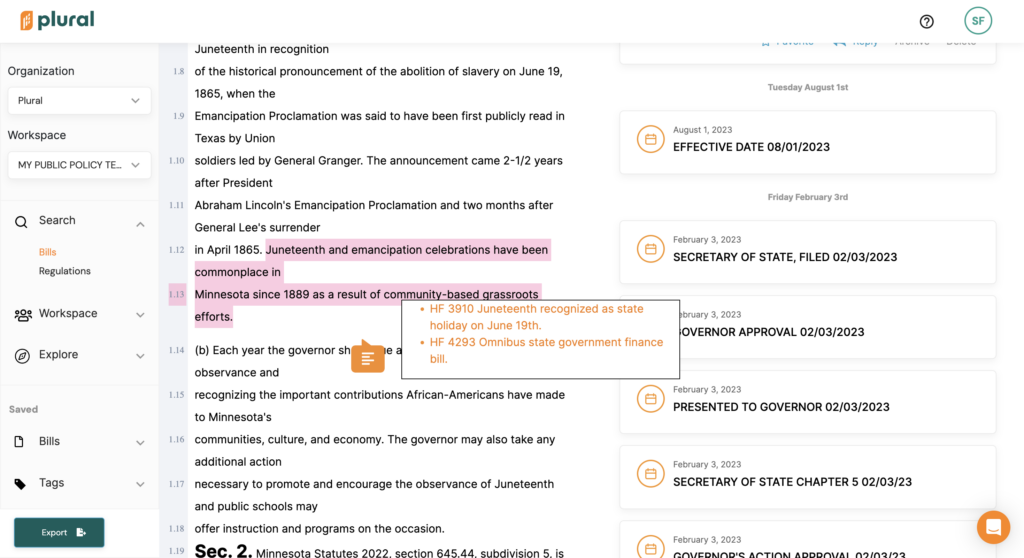
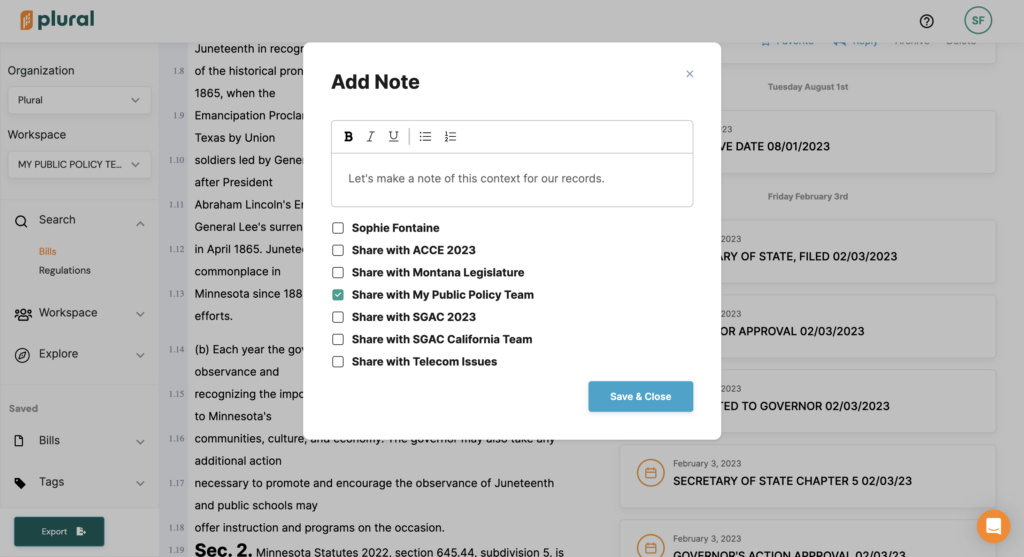
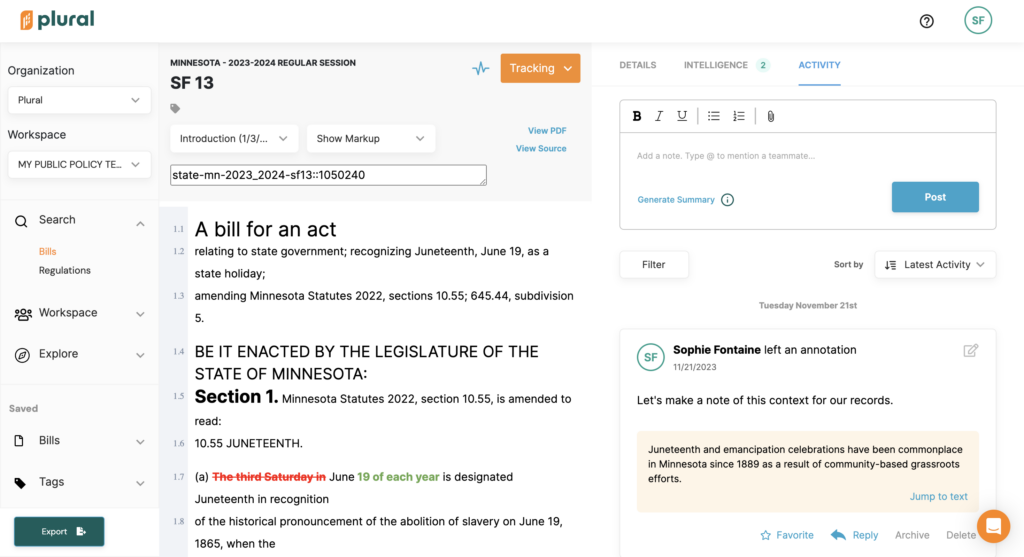
Workspaces
Plural’s secure digital Workspaces enable seamless collaborative efforts, streamlining shared projects with teammates. Your Workspace houses any and all details related to the bills your team is tracking, the tags you’ve created, the searches you’ve saved, and any activity you’ve generated in Plural.
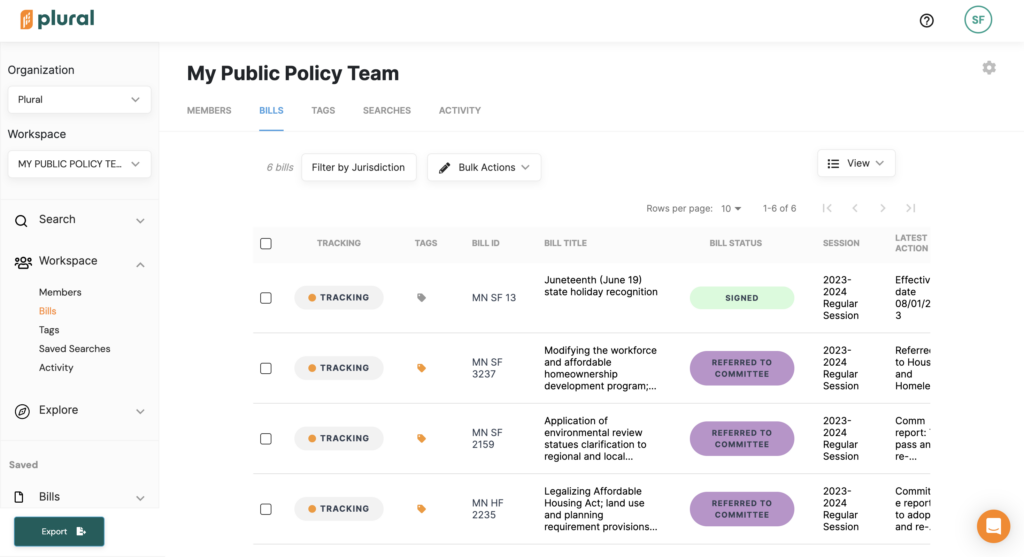
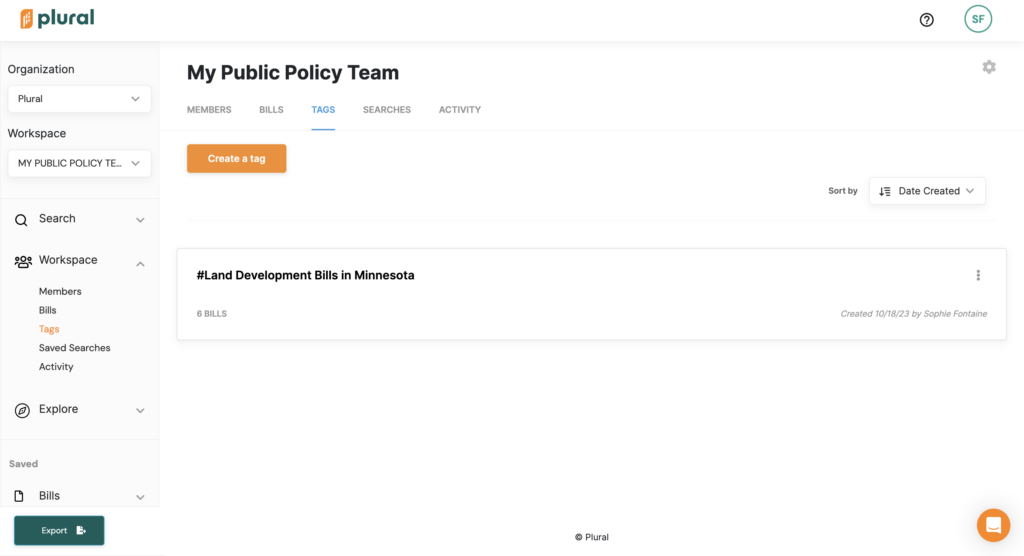
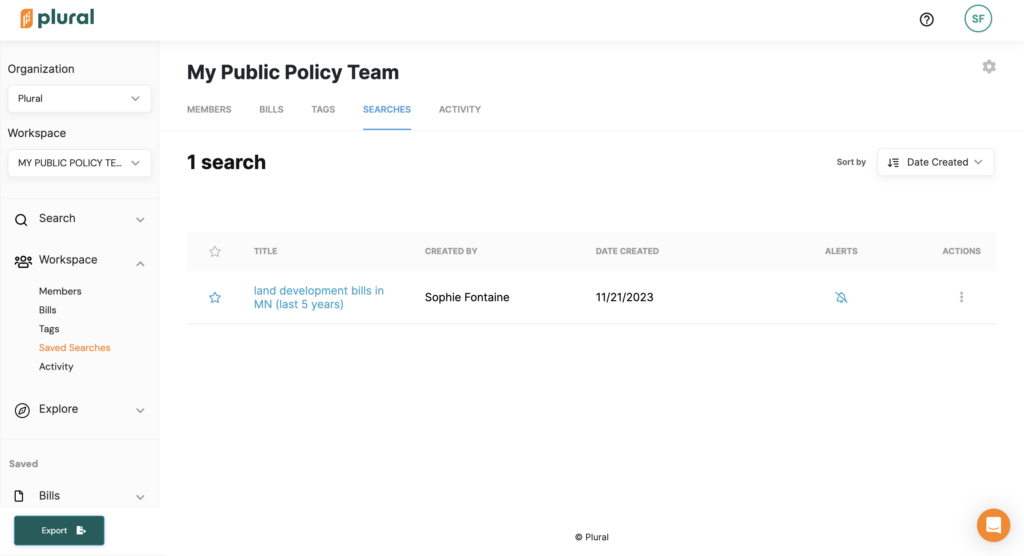
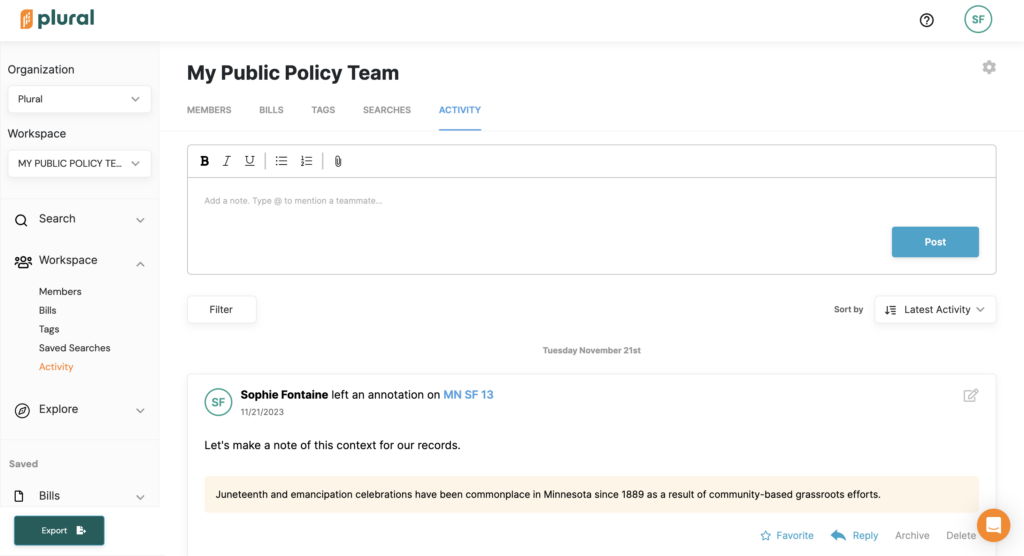
Comprehensive Legislative Histories
Plural contains session data dating back decades. Delve into historical context, an essential aspect of understanding legislative trends.
Single-State Subscription
Plural provides tailored solutions, including single-state subscriptions for focused research.
Get Started With Plural
Navigating the legislative environment doesn’t have to be daunting. Accessing the right tools simplifies this process. The correct tools can make legislative research streamlined, informative, and even enjoyable.
Plural stands out as a transformative tool for legislative research. At Plural, we’re committed to empowering professionals to conduct thorough, efficient legislative research. Our tools help policy pros find what matters, get organized, collaborate effectively, and even dig deeper.
Interested in learning how Plural can work for your legislative research needs? Create a free account or book a demo today!
